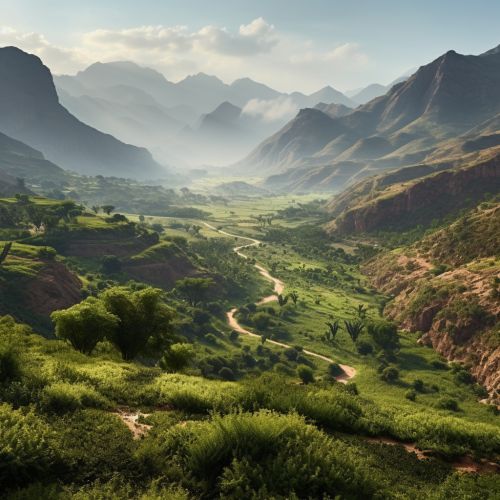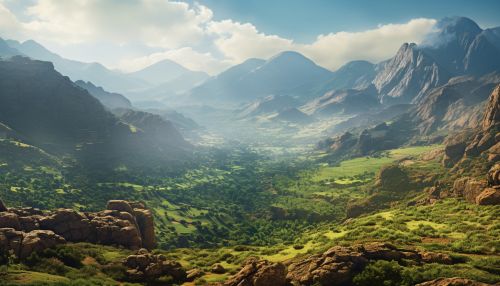Djebel Babor Nature Reserve
Overview
The Djebel Babor Nature Reserve is a protected area located in the Djebel Babor Mountains, part of the larger Tell Atlas mountain range in northern Algeria. The reserve is recognized for its unique biodiversity, including several endemic and endangered species, and is considered a significant area for conservation in the Mediterranean region.


Geography and Climate
The Djebel Babor Nature Reserve is situated in the Setif Province, covering an area of approximately 27.63 square kilometers. The reserve is characterized by its mountainous terrain, with altitudes ranging from 1,200 to 2,004 meters above sea level at the peak of Djebel Babor. The reserve's geographical location in the Tell Atlas range results in a Mediterranean climate, with wet winters and hot, dry summers.
Flora and Fauna
The reserve is home to a rich variety of flora and fauna, many of which are endemic to the region. The vegetation is predominantly composed of Atlas cedar (Cedrus atlantica) forests, along with various species of juniper, oak, and pine. The reserve also hosts a number of rare and endangered plant species, such as the Algerian Iris (Iris unguicularis).
The fauna of the Djebel Babor Nature Reserve is equally diverse, with several species of mammals, birds, reptiles, and amphibians inhabiting the area. Notable mammalian species include the Barbary macaque (Macaca sylvanus), wild boar, and the endangered Cuvier's gazelle (Gazella cuvieri).
Conservation Efforts
The Djebel Babor Nature Reserve was established in 1925, making it one of the oldest protected areas in Algeria. The reserve is managed by the Algerian Ministry of Agriculture and Rural Development, with the primary aim of conserving the unique biodiversity of the area. Conservation efforts include habitat restoration, monitoring of wildlife populations, and enforcement of regulations to prevent illegal hunting and logging.
Research and Education
The Djebel Babor Nature Reserve is an important site for scientific research, particularly in the fields of ecology and conservation biology. Several studies have been conducted on the reserve's unique biodiversity, contributing to our understanding of the Mediterranean ecosystems. The reserve also serves as an outdoor classroom for environmental education, promoting awareness and appreciation of nature among the local community and visitors.
Tourism
While the primary focus of the Djebel Babor Nature Reserve is conservation, the area is also a popular destination for eco-tourism. Visitors to the reserve can enjoy hiking, bird watching, and wildlife photography, while experiencing the stunning natural beauty of the Atlas Mountains. However, tourism activities are carefully managed to minimize their impact on the environment and wildlife.
